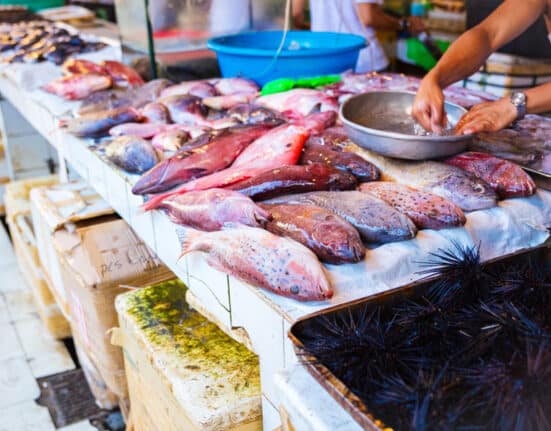PRICES of goods and services increased by 6.1% in September, government data showed Thursday, as inflation rose for the second straight month.
Last month’s inflation was higher compared to 5.3% in August, according to the Philippine Statistics Authority, bringing the year-to-date average to 6.6%.
The increase was attributed to higher food inflation, which rose to 10% last month from 8.2% in August.
The factors contributing to higher food inflation include rice (17.9% from 8.7%), meat (1.3% from -0.1%), fruits (11.6% from 9.6%), and corn (1.6% from 0.9%).
“The government is committed to providing targeted assistance to affected vulnerable segments of the population while food prices remain elevated,” said National Economic and Development Authority (NEDA) Secretary Arsenio Balisacan.
Balisacan cited the Food Stamp Program, which aims to address the lingering incidence of food poverty and malnutrition among low-income Filipino households by providing monthly meal augmentation worth P3,000.
The Department of Social Welfare and Development (DSWD) will provide a P10,000 cash subsidy to 78,000 farmers listed in the Pantawid Pamilyang Pilipino Program (4Ps), while rice farmers are set to receive P5,000 as financial assistance to help sustain their productivity amid the increasing cost of production, the NEDA said.
The NEDA also said that as of September 27, 2023, the Land Transportation Franchising and Regulatory Board (LTFRB) had provided fuel subsidies to 74,089 public utility vehicles.
Moreover, the Inter-Agency Committee on Inflation and Market Outlook (IAC-IMO) recommended extending the lower Most Favored Nation (MFN) tariff rate on rice under Executive Order No. 10.
“To address the increasing price of rice and ensure enough supply through timely and adequate importation, the IAC-IMO recommends extending the lower MFN tariff rate on rice until December 2024, subject to review in July 2024. This policy response must be complemented by efforts to improve the predictability and transparency of issuing the Sanitary and Phytosanitary Import Clearance for rice and all commodities,” Balisacan said.
“As we implement short-term measures to ease the negative effects of inflation, it is imperative that we also address our long-term food supply issues by providing support for our local farmers to boost their productivity and resilience. These include investing in irrigation, modern high-yielding varieties, pest control, and logistics,” he added.









